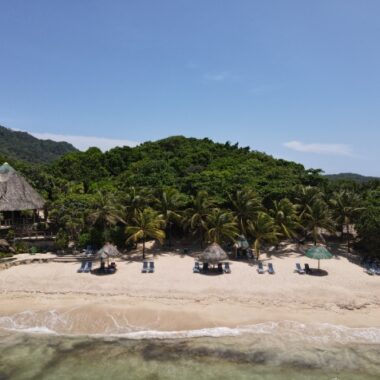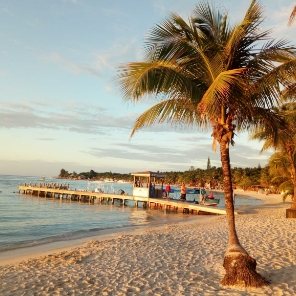
5 tips to survive JetLag
Jetlag může narušit vaše cestování, ale s několika jednoduchými tipy a strategiemi můžete minimalizovat jeho dopad a rychle se přizpůsobit novému času.
Adapting to the new time zone in advance
If you know you will be travelling to a different time zone, start preparing your body for the new time zone before you leave. When travelling east (e.g. to Europe from America), try to go to bed and wake up an hour or two earlier than you are used to. Conversely, when travelling west (e.g. from Europe to the USA), allow yourself a longer wake-up time and go to bed later. This will reduce the shock to your body when you arrive at your destination, as it will already be partially tuned into the new routine.
Tip:
Use apps like Jet Lag Rooster or Timeshifter to create a customized plan for gradual sleep changes before your trip.
Stay hydrated
Dehydration is a common problem with air travel and can make jetlag worse. The air in an airplane cabin is very dry, causing the body to lose more fluid than usual. In addition, the consumption of alcohol and caffeine (e.g. coffee or tea) can make dehydration worse as they have diuretic effects and interfere with sleep quality.
Recommendations:
- Drink plenty of water, ideally at least one glass per hour of flight.
- Limit or completely avoid alcohol and caffeine, especially before bedtime, to help you sleep better after arrival.
Exposure to natural light
Light is an essential factor in regulating our biological clock (called the circadian rhythm). Your body adapts based on light and dark, so timing your exposure to light correctly can greatly help you manage jetlag. When arriving at a new destination, it is important to seek out natural daylight to help your biological clock synchronize with your new environment.
Light therapy tips:
When traveling east: if you arrive in the morning, try to expose yourself to morning light as much as possible. Avoid bright evening light as it can confuse your body.
When travelling west: When arriving in the afternoon or evening, on the other hand, it is a good idea to expose yourself to evening light and avoid morning sunlight to extend your circadian clock.
If there is too much sunlight, you can also use blue blockers (goggles), which filter out specific blue light and can help adjust your body to night mode.
Work with your sleep rhythm
Jetlag often causes sleep problems, especially when traveling across many time zones. Here are a few ways to deal with it:
Don’t nap during the day. Small naps (called power naps) of 20-30 minutes can give you energy without disturbing your night’s sleep.
Melatonin: Melatonin is a hormone your body naturally produces that regulates sleep. You can take it as a dietary supplement to help your biological clock. If you are traveling east, take melatonin about an hour before bedtime. When traveling west, it can help you sleep deeper and longer in your new destination.
Relaxation techniques: try meditation, breathing exercises or gentle yoga before bed to reduce travel stress and fall asleep faster.
Move around and exercise more quickly to help you slow down from traveling.
Exercise is another effective tool to deal with jetlag. Physical activity boosts energy and improves mood, which can help you overcome travel fatigue. A short walk or light exercise upon arrival can help you adapt to your new surroundings more quickly. Moving outdoors will also give you exposure to light, an ideal combination for overcoming jetlag.
Recommendation:
Upon arrival: Go for a walk or a light jog to get your body moving while getting exposure to daylight.
During the flight: If you have a long flight, take regular walks around the cabin to keep your circulation going.
Bonus tip: Food and jetlag
Food and its timing can also affect your biological rhythm. Some experts recommend eating in accordance with the time at your destination to give your body another signal to adjust. Heavy meals before bedtime are not recommended as they can impair sleep quality. Conversely, light, easily digestible meals are ideal before bedtime.
- When travelling east: eat earlier than usual to help your body adjust more quickly.
- When travelling west: try to eat a little later and avoid meals just before bedtime.
The combination of these strategies should greatly alleviate jetlag symptoms and help your body adjust more quickly to the new time zone.
- #Island
- #Roatán
- #Transport
- #Travel







